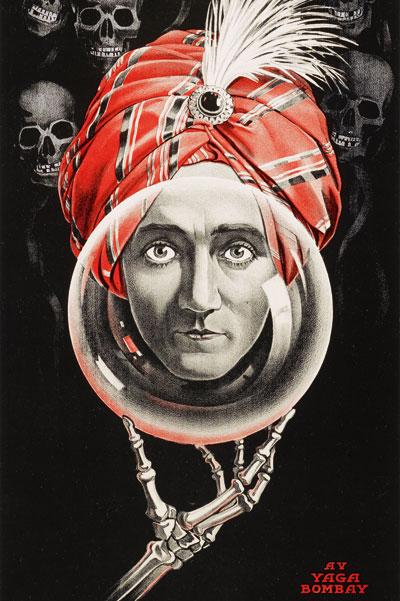A friend of mine who works for the NHS has been told recently by a superior that his ‘attention to detail is bordering on the obsessive’. Aside from observing that an obsessive attention to detail might serve the health service well, this is an example of the kind of insult that Professor Irvine would ascribe either to low self-esteem or to narcissism (high self-esteem with no self-knowledge).
The speaker wasn’t offering constructive criticism (my friend had been praised for his attention to detail only days before, by a perhaps less negligent superior) but rather emphasising her superiority, something she had no need to do, unless she felt it threatened. My friend’s attention to detail is clearly her problem rather than his.
Irvine begins with examples of insult. There are all sorts: Elizabethan, anonymous, first strike, public, quasi-verbal, benign, teasing and so on. He then moves on to why insults are thrown. He puts this down almost exclusively to a need to defend or improve one’s social status. Social status is reckoned by fame or affluence or both. One is hurt because one’s status is challenged.
During the course of this short book of great clarity, Irvine takes on two progressive fashions: the modern educationalist’s belief in the importance of self-esteem, and the shutting down of free speech, especially in the academy, by the imposition of what Irvine calls political correctness codes. For the latter he gives as an example the firing of a college professor for allowing debate about the word ‘nigger’ in his class (a seminar on offensive language, as it happens).
In regard to the former, Irvine points out that while the aim of educationalists was to eradicate the low esteem that leads to a number of social evils, the result was to create a generation of narcissists, hyper-sensitive to any form of criticism, but more than happy to hand it out. One need only look at the ‘comments’ on almost any subject on the internet to find the insults flying left, right and centre (both politically and metaphorically). For very many people who received their education in the last 30 years or so rational argument is simply no substitute for ad hominem nastiness.
Finally he shows us how we can stop being hurt. There are, as it were, stop-gap methods, including silence. This he describes as ‘insult pacifism’. He points out that this may very well stop one being insulted, as seeming to have no effect, but that the important thing is not to feel insulted. And not to feel insulted requires one to be stoical. Or rather Stoical — for it is to the Stoics that Irvine turns, which is not surprising, for he is something of an expert, being the author of The Good Life: The Ancient Art of Stoic Joy.
The Stoics gave not a fig for social status. What they were interested in was virtue and tranquillity, the first understood to lead to the second. Virtue is of course a tremendously old-fashioned word, what with neuroscientists telling us our behaviour is genetically pre-ordained and Marxists insisting it is dictated by our environment. Irvine, a practising Stoic, believes that the individual is morally responsible for his own happiness.
This is a book by a philosopher mercifully free of jargon or contorted language of any sort. The obvious is not ignored, and this helps us progress from one part of an argument to the next. While impatient readers might fume, this one found it relaxing. We are in the company of someone who speaks slowly and clearly, without being in the least bit patronising. Having said that, his message, when it comes down to it, is that sticks and stones may break your bones, but words will never hurt you — so long as your values are good.
So I do wonder who this book is for. I am not personally insulted all that often, though quite happy to be offended by tawdry television programmes or illiterate school teachers. But would I really want the Australian cricket team to practise virtuous restraint, lose its inventive vulgarity when it comes to the ‘sledge’? ‘There’s shit on the end of your bat’, the Australian fast bowler Dennis Lillee once pointed out to an England batsman troubled by his bowling. The batsman turned his bat upside down to examine it. ‘Not that end’, called Lillee over his shoulder.
A friend of mine who works for the NHS has been told recently by a superior that his ‘attention to detail is bordering on the obsessive’. Aside from observing that an obsessive attention to detail might serve the health service well, this is an example of the kind of insult that Professor Irvine would ascribe either to low self-esteem or to narcissism (high self-esteem with no self-knowledge). The speaker wasn’t offering constructive criticism (my friend had been praised for his attention to detail only days before, by a perhaps less negligent superior) but rather emphasising her superiority, something she had no need to do, unless she felt it threatened. My friend’s attention to detail is clearly her problem rather than his. Irvine begins with examples of insult. There are all sorts: Elizabethan, anonymous, first strike, public, quasi-verbal, benign, teasing and so on. He then moves on to why insults are thrown. He puts this down almost exclusively to a need to defend or improve one’s social status. Social status is reckoned by fame or affluence or both. One is hurt because one’s status is challenged.
During the course of this short book of great clarity, Irvine takes on two progressive fashions: the modern educationalist’s belief in the importance of self-esteem, and the shutting down of free speech, especially in the academy, by the imposition of what Irvine calls political correctness codes. For the latter he gives as an example the firing of a college professor for allowing debate about the word ‘nigger’ in his class (a seminar on offensive language, as it happens).
In regard to the former, Irvine points out that while the aim of educationalists was to eradicate the low esteem that leads to a number of social evils, the result was to create a generation of narcissists, hyper-sensitive to any form of criticism, but more than happy to hand it out. One need only look at the ‘comments’ on almost any subject on the internet to find the insults flying left, right and centre (both politically and metaphorically). For very many people who received their education in the last 30 years or so rational argument is simply no substitute for ad hominem nastiness.
Finally he shows us how we can stop being hurt. There are, as it were, stop-gap methods, including silence. This he describes as ‘insult pacifism’. He points out that this may very well stop one being insulted, as seeming to have no effect, but that the important thing is not to feel insulted. And not to feel insulted requires one to be stoical. Or rather Stoical — for it is to the Stoics that Irvine turns, which is not surprising, for he is something of an expert, being the author of The Good Life: The Ancient Art of Stoic Joy.
The Stoics gave not a fig for social status. What they were interested in was virtue and tranquillity, the first understood to lead to the second. Virtue is of course a tremendously old-fashioned word, what with neuroscientists telling us our behaviour is genetically pre-ordained and Marxists insisting it is dictated by our environment. Irvine, a practising Stoic, believes that the individual is morally responsible for his own happiness.
This is a book by a philosopher mercifully free of jargon or contorted language of any sort. The obvious is not ignored, and this helps us progress from one part of an argument to the next. While impatient readers might fume, this one found it relaxing. We are in the company of someone who speaks slowly and clearly, without being in the least bit patronising. Having said that, his message, when it comes down to it, is that sticks and stones may break your bones, but words will never hurt you — so long as your values are good.
So I do wonder who this book is for. I am not personally insulted all that often, though quite happy to be offended by tawdry television programmes or illiterate school teachers. But would I really want the Australian cricket team to practise virtuous restraint, lose its inventive vulgarity when it comes to the ‘sledge’? ‘There’s shit on the end of your bat’, the Australian fast bowler Dennis Lillee once pointed out to an England batsman troubled by his bowling. The batsman turned his bat upside down to examine it. ‘Not that end’, called Lillee over his shoulder.
Got something to add? Join the discussion and comment below.
Get 10 issues for just $10
Subscribe to The Spectator Australia today for the next 10 magazine issues, plus full online access, for just $10.
You might disagree with half of it, but you’ll enjoy reading all of it. Try your first month for free, then just $2 a week for the remainder of your first year.











Comments
Don't miss out
Join the conversation with other Spectator Australia readers. Subscribe to leave a comment.
SUBSCRIBEAlready a subscriber? Log in